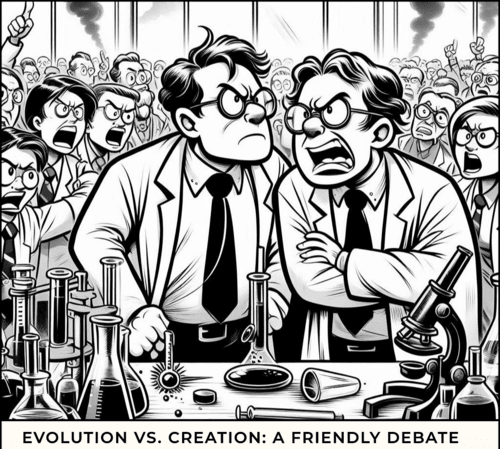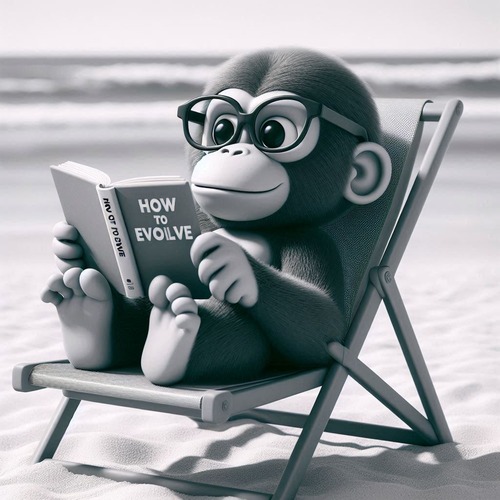The Kalam Cosmological Argument: A Case For God
EVERYTHING THAT BEGINS TO EXIST HAS A CAUSE…
Exploring the Cosmic Origins of Existence
What lies beyond the farthest reaches of space and before the birth of time itself? This profound existential question has captivated philosophers and scientists across epochs and cultures. The Kalam cosmological argument beckons us to peer beyond the misty veil of the Big Bang and contemplate the ultimate metaphysical reality: the origin of the entire universe from literally nothing.
In this metaphysical odyssey tracing backward through cosmic history, we encounter signs that may unmistakably point towards a transcendent, supernatural source of all reality—an eternally existent, omnipotent Creator. This ancient argument, first developed by medieval Islamic thinkers, rests on three deceptively simple premises that carry seismic implications.
Arising from medieval Islamic philosophy, this ancient argument offers three powerful, yet simple, premises that have reverberated down the ages like the voice of a wise prophet:
- Everything That Begins to Exist Has a Cause
- The Universe Began to Exist
- Therefore, the Universe Has a Cause
Sceptics point to the diversity of beliefs and rampant non-belief, and ask: if God truly exists, and His existence is that obvious, why are there all these varied responses? Or why doesn’t everyone recognize God as the universe’s first cause?
The multitude of our views about, and responses to, God doesn’t necessarily prove the non-existence of God. While we may all have an innate awareness of God’s existence, we each respond to this awareness in our own ways. Buried within the multiplicity of religions and philosophies, we consistently find core tenets hinting at something transcendent–a belief in realms beyond the physical, the existence of moral codes, an awareness of human sinfulness, a search for purpose and meaning. Even those professing atheistic worldviews wrestle with life’s biggest metaphysical questions.
The Christian may also remind the sceptic of Blaise Pascal’s suggestion that there’s a God-shaped vacuum in each of us that only the real God can fill, and the pretenders can’t. No pursuit of idols, or wealth, or power, or pleasure can ultimately fill this vacuum. Till we come to Him, we have a nagging sense there is something more to existence, some transcendent meaning and purpose we were created for, but are yet sadly missing.
Conclusion: The Implications of the Kalam Cosmological Argument
From the premises of the Kalam Cosmological Argument, a stunning conclusion emerges: the existence of an eternal, necessary, and immensely powerful First Cause or Creator. This First Cause is beyond the physical and temporal universe, existing independently and uncaused. Such a being is fundamentally different from the dependent, finite world we experience.
The Kalam offers a clear philosophical path to understanding God’s existence and essential attributes. It suggests an unimaginably great, eternal, simple, uncaused, supernatural, and incredibly powerful Source that is radically distinct from our finite cosmos. This conclusion may seem astonishing, but it leads us to the idea of a Supreme Reality—one that supports the entire structure of material existence. This reality is what we fittingly call God.
The Kalam presents a logical and straightforward explanation for the mysteries of the universe’s origin. For those open to exploring these profound questions, the argument offers a strong case for God’s existence, encouraging deeper philosophical and existential reflection. At the very least, the Kalam points us towards the vast, unexplored realms of existence, prompting us to consider the infinite mysteries that lie beyond our physical reality.
Related Reads:
- The Ontological Argument: Can We ‘Logic’ Our Way to God?
- Aquinas’ Quinque Viae: Timeless Arguments for the Existence of God
- The Universal Moral Oughts: Signposts to the Divine
- The Teleological Argument: Unveiling Design in a Universe of Wonder
- The Fine-Tuning Argument: Can Orchestras Compose and Conduct Themselves?
Editor's Pick

From Empty to Overflow: The Abundant Life Jesus Promised
(AND WHY YOU SHOULDN’T SETTLE FOR LESS) We're surviving, but are we thriving? If we're honest, there's a gap between [...]

What Does Jesus Save Us From?
THREE BIBLE TRUTHS ABOUT SALVATION "Jesus saves." We’ve seen it on bumper stickers, heard it shouted at sporting events, maybe [...]

If God Wants Everyone Saved, Why Aren’t They?
THE REFORMED VIEW ON GOD’S DESIRE VS HIS DECREE The question haunts every believer who has lost an unbelieving loved [...]

The One Man Mystery in Acts 17:26: Is It Adam Or Noah?
When the Apostle Paul stood before the philosophers at Mars Hill, he delivered an insightful statement about human unity: “And [...]

Megiddo Or Jerusalem: Where Did King Josiah Die?
Recent archaeological discoveries at Tel Megiddo continue to reveal evidence of Egyptian military presence during the late 7th century BC, [...]

Losing Your Life Vs Wasting It: How Are the Two Different?
AND WHY DID JESUS PRAISE THE FORMER? Jesus spoke one of the most perplexing statements in Scripture: “For whoever wants [...]

Can Christians Be Demon Possessed? What the Bible Teaches
Perhaps you’ve witnessed disturbing behavior in a professing Christian, or you’ve struggled with persistent sin and wondered if something darker [...]

Sacred Fury: What Christ’s Temple Cleansing Truly Means
Mark 11 records the crack of a handmade whip that echoed through the temple corridors. Tables crashed to the ground, [...]

Did Jesus Cleanse the Temple Twice?
OR DID JOHN DISAGREE WITH THE SYNOPTICS ON TIMING? One of sceptics’ favourite "gotcha" questions targets what they see as [...]

Self-Authentication: Why Scripture Doesn’t Need External Validation
"How can the Bible prove itself? Isn't that circular reasoning?" This objection echoes through university classrooms, coffee shop discussions, and [...]
SUPPORT US:
Feel the Holy Spirit's gentle nudge to partner with us?
Donate Online:
Account Name: TRUTHS TO DIE FOR FOUNDATION
Account Number: 10243565459
Bank IFSC: IDFB0043391
Bank Name: IDFC FIRST BANK






